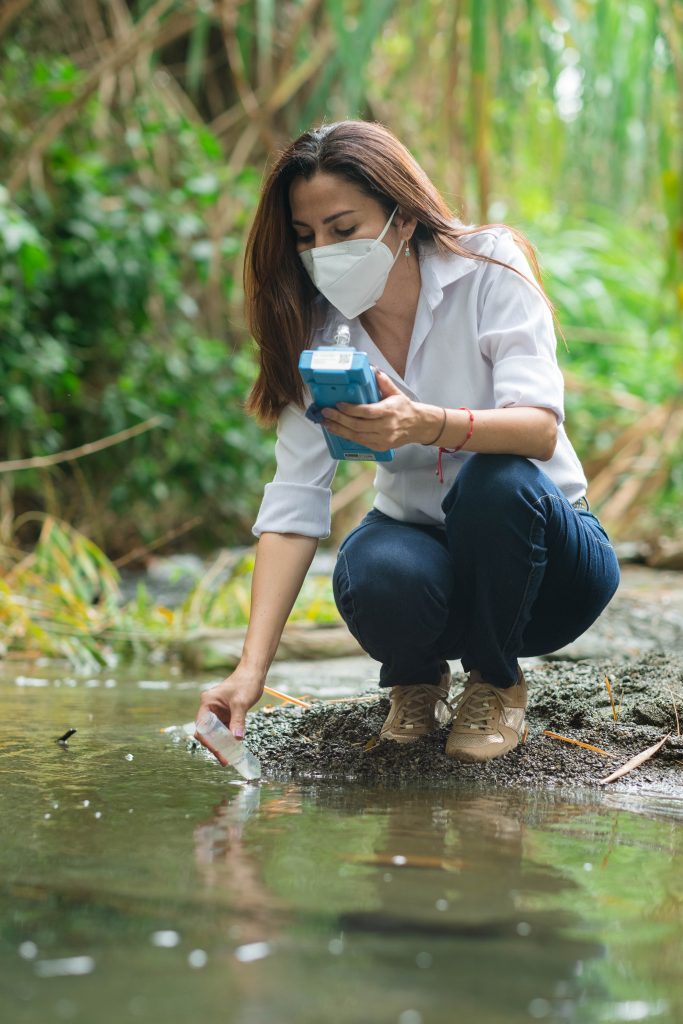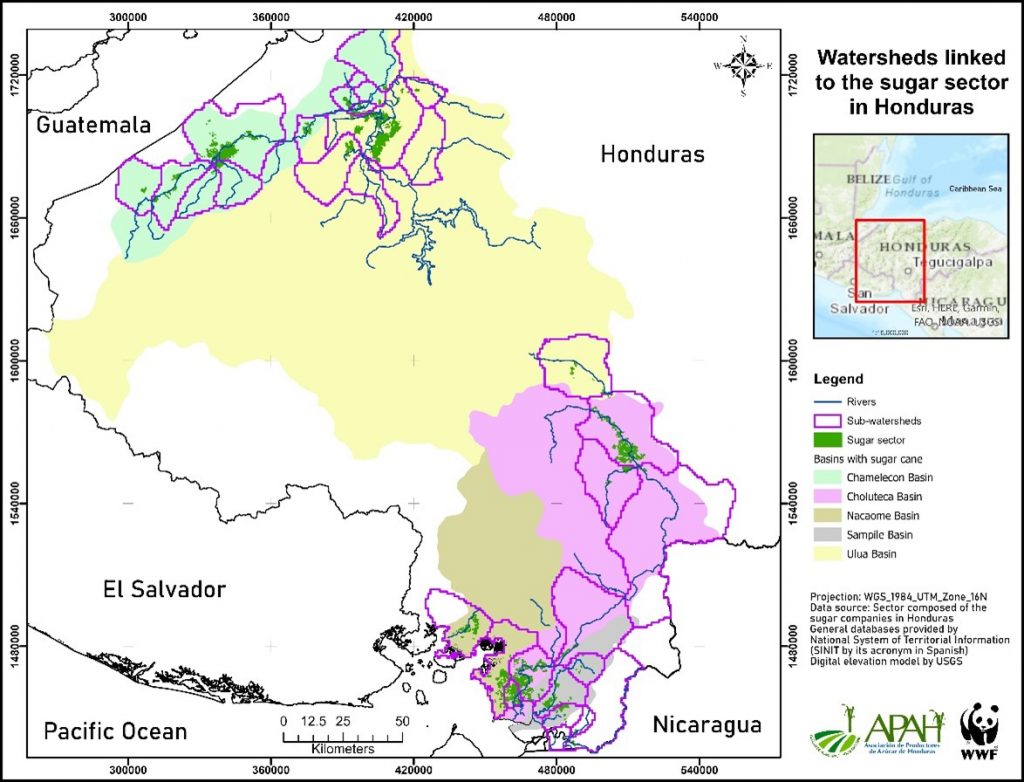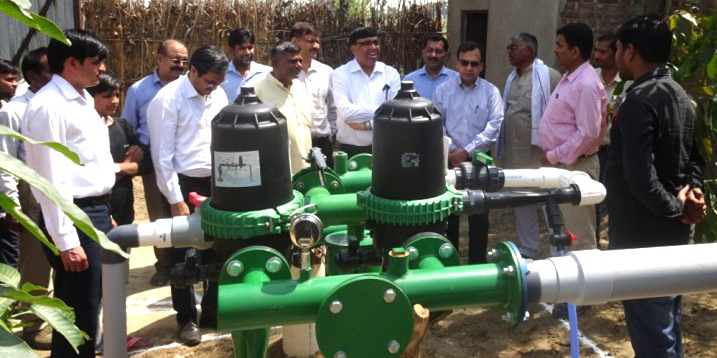Taken from: www.bonsucro.com
Careful water management is essential for a sustainable sugarcane sector. Bonsucro is committed to working with its members to ensure that water is available where there is a need and that it helps to maintain rather than harm local ecosystems. This world water day, we seek the actions of our members to manage sustainable water in different countries.
Colombia
What is the project?
Through Cenicaña, the Colombian sugarcane agribusiness, conducts research on the conservation and recovery of the water supply. The project monitors the supply and demand of water, as well as increasing the efficiency of use from the upper part of the basins to the sugar mills. The project extends through the south of the department of Risaralda to the north of the department of Cauca.
What motivated the project?
Cenicaña believes that it is important to understand and quantify the relationship between the actions carried out by agribusiness and their impact. Resources are not abundant, so investments must be effective. The project's objective is to regulate the bodies of water present in the benefited area, maintain the necessary flows for the supply of drinking water, agricultural and industrial use, and for the conservation of biodiversity.
The solution
 For more than twelve years, the sugarcane agribusiness has implemented actions to protect, improve and conserve the current state of ecosystems, in 26 basins of the tributary rivers of the Cauca River with areas of influence of sugar cane cultivation. A scientific basis was established to know what the impacts are on the quantity, water quality and sediment transport (loss of soil) in the intervened areas.
For more than twelve years, the sugarcane agribusiness has implemented actions to protect, improve and conserve the current state of ecosystems, in 26 basins of the tributary rivers of the Cauca River with areas of influence of sugar cane cultivation. A scientific basis was established to know what the impacts are on the quantity, water quality and sediment transport (loss of soil) in the intervened areas.
These actions include isolating riparian forests, water sources and moorlands, as well as the establishment of silvopastoral systems, biological mini-corridors, among others, which have been carried out within the framework of the Fundación Fondo Agua por la Vida sector initiative. and Sustainability.
Of the 26 basins intervened with protection and recovery actions, a validation zone was taken in 2014 in the Bolo river basin (Valle del Cauca), to carry out socioeconomic, biodiversity and hydrological monitoring of the scope of these actions and the scale to which they impact.
In the case of hydrological monitoring, areas with similar characteristics are compared with and without interventions (paired basins), where flow measurements and total suspended solids (sediments) are made every 15 minutes through automated hydrometric stations in five basins, to compare the response in water regulation and physical quality (loss of soil in the stream). Likewise, equipment is used that allow knowing the meteorological variables (precipitation, relative humidity, air temperature, solar radiation, direction and wind speed) of the area that intervene in the rain - flow relationship and therefore in the water balance. of the zones.
What are the objectives of the project?
Cenicaña seeks to monitor the impacts on water quantity and quality of conservation and recovery actions on water and soil implemented in the basins influenced by the cultivation of sugar cane, in order to obtain scientific evidence and guide investment.
What are the results?
The sugarcane agribusiness has collaborated with its partners and allies to protect, improve and conserve soil and water in 26 basins, with 29 municipalities and more than 850.000 hectares, located from flat area wetlands to more than 1.300 msnm above the basin in the strategic ecosystems of páramo, subparamo, high Andean forest, sub-Andean forest and dry forest.
The main results of the socioeconomic monitoring have shown the generation of trust of the inhabitants of the upper part of the basins towards companies, the sugar industry and program partners, a different attitude towards water management and its conservation, the perception of the Valuation of the farm with an increase in family and community heritage, as well as the recognition of natural heritage, likewise, have demonstrated once again that local community organizations are the "jewel in the crown" in the protection and conservation processes Such is the case of water user associations, who maintain permanent relationships with: indigenous councils, aqueduct boards, local producer associations, community action boards, among others.
The results of hydrological monitoring in the pilot zones to date show a better hydrological response in the protected areas, with maximum flows monitored in them decreased with the establishment of the protections, avoiding less soil loss and soil dragging. Likewise, they show more stable flows in the dry season (lower rainfall); contrasting with unprotected areas where the water balance of the zones has shown an increase in surface runoff, reducing the contribution of the upper zone (mountainous block) to underground storage, generating unfavorable conditions for the availability of water in the flat zone at the time dry.
Central America
What is the project?
In central America, WWF has promoted the implementation of the Bonsucro standard in order to put into action such an abstract concept as sustainability in the sugar sector. At the sectoral level, in 2018, the Sustainability Guiding Principles Guide was developed in conjunction with the Association of Sugar Producers of Honduras (APAH), based on the principles and criteria of the Bonsucro standard and integrating national compliance indicators for the sector. Indicators related to water have been extremely important in the face of climate change.
What motivated the project?
Honduras is a developing country and vulnerable to climate change. The sugar sector faces more challenges every day, mainly those linked to maintaining productivity and sustainability in the face of the effects of extreme events, linked to water resources. The scarcity or abundance of water (droughts or floods) have negative effects on productivity, proliferation of pests, diseases and social conflicts, among others.
The solution
APAH, with the support of WWF, developed a strategy from the perspective of water security through integrated watershed management, in order to promote that the mills contribute to the conservation of water recharge zones and important areas to ensure the continuity of the resource. water for its production processes and reduce the effects of climate variability. According to Gerardo Guillén, Executive Director of APAH: "this is synonymous with sustainable development due to good environmental practices and efforts that are being promoted."

What are the results?
Within the framework of International Water Day, it is important to reflect that in the face of the pressing challenges posed by climate variability in developing and highly vulnerable countries, the sugar sector plays an extremely important role. This role is not only relevant in terms of sustainability, but also in terms of creating resilience to climate change through nature-based conservation solutions in watersheds, to maintain a balance between nature and society. This is essential to increase the resilience of the sector and local communities, as well as to ensure the global production of this important sector.
India
What is the project?
Meetha Sona Pariyojana is a sustainable sugarcane project managed by DCM Shriram Ltd in India. The goal is to improve productivity, conserve water resources, and improve soil health in sugarcane cultivation. The project is implemented between the four DCM Shriram mills in the Lakhimpur Khiri and Hardoi regions of Uttar Pradesh.
What motivated the project?
Small growers in DCM Shriram's sugarcane catchment area used to have low agricultural yields, compared to sugarcane growers in other parts of the state and the country. Low agricultural yields were the result of low technical knowledge about sugarcane cultivation, limited access to technology, and unsustainable use of inputs, such as excessive application of fertilizers and water. This led to an increase in the cost of cultivation without an increase in yield. In addition, farmers were adopting practices that do not contribute to the climate, such as burning crop residues and excessive irrigation.
DCM Shriram considered it important to educate farmers to increase crop yields, by adopting appropriate water conservation and good agronomic practices.
The solution
DCM Shriram Ltd has developed a robust system for building farmer capacities to improve sustainable yield, by adopting a climate-smart agronomy practice package. The project is called 'Meetha Sona Pariyojana', which translates from Hindi to sweet gold.
What happened?
An eight-step approach has been adopted that includes the following:
- Assessment of need: This was done by identifying gaps and opportunities and a baseline or diagnostic study
- Tailor-made package of practices: A locally appropriate package of practices was developed, including efficiency in water use and improvement of soil health, taking into account the agro-climatic and socioeconomic status of small farmers.
- Capacity building: Approach training of trainers, intensive classroom and field training plus feedback by sugar experts from renowned sugar cane research institutes.
- Development of training manuals for farmers: Training manuals have been developed that incorporate good agricultural practices for producers and extension staff.
- Lead farmers: To develop agents of change, a small group of farmers have been identified and selected as lead farmers. Technology demonstration and exposure, hand-in-hand mentoring, are involved in their development. Micro-entrepreneurship for mechanization is also promoted.
- Farmer training: Farmer training by extension workers, field expert advice and technology demonstration.
- Monitoring and evaluation: Field yield with crop harvest, farmer knowledge attitude behavior survey and cost-benefit analysis.
- Scale and replication: Development results and best practices / lessons learned.

What are the objectives of the project?
The project is based on essential training for small farmers by expert scientists and extension workers in the field. The training modules included good agronomic practices for productivity, efficient water management practices including a drip irrigation system, soil health management focusing on increasing the organic carbon content in soils, climate smart agronomic practices, integrated pest management including biological pest control and gender inclusion.
What are the results?
Since the project began, 225.000 farmers received training on good agricultural and water management practices. This has resulted in an average 25% increase in yields in watersheds. Furthermore, in the last five years, more than 574 billion liters of water have been saved, which has been certified by Lucknow, the Indian Sugarcane Research Institute. There has also been large-scale adoption of garbage shredding, mud compactor, and 19.700 compost treads have been placed.
Source: Bonsucro.com March 22, 2021 - 08:00 pm
Available online:
https://www.bonsucro.com/valorando-el-agua/
Disclaimer Disclaimer
Cenicaña reproduces this note for no commercial purpose as a service to its readers, recognizing the ownership of the content at the head of the respective source and providing the URL where the original document is available. Cenicaña does not guarantee that the information provided here is always up-to-date, accurate, or complete, or that such information is free of third-party intellectual property rights or exempt from copyrights.












